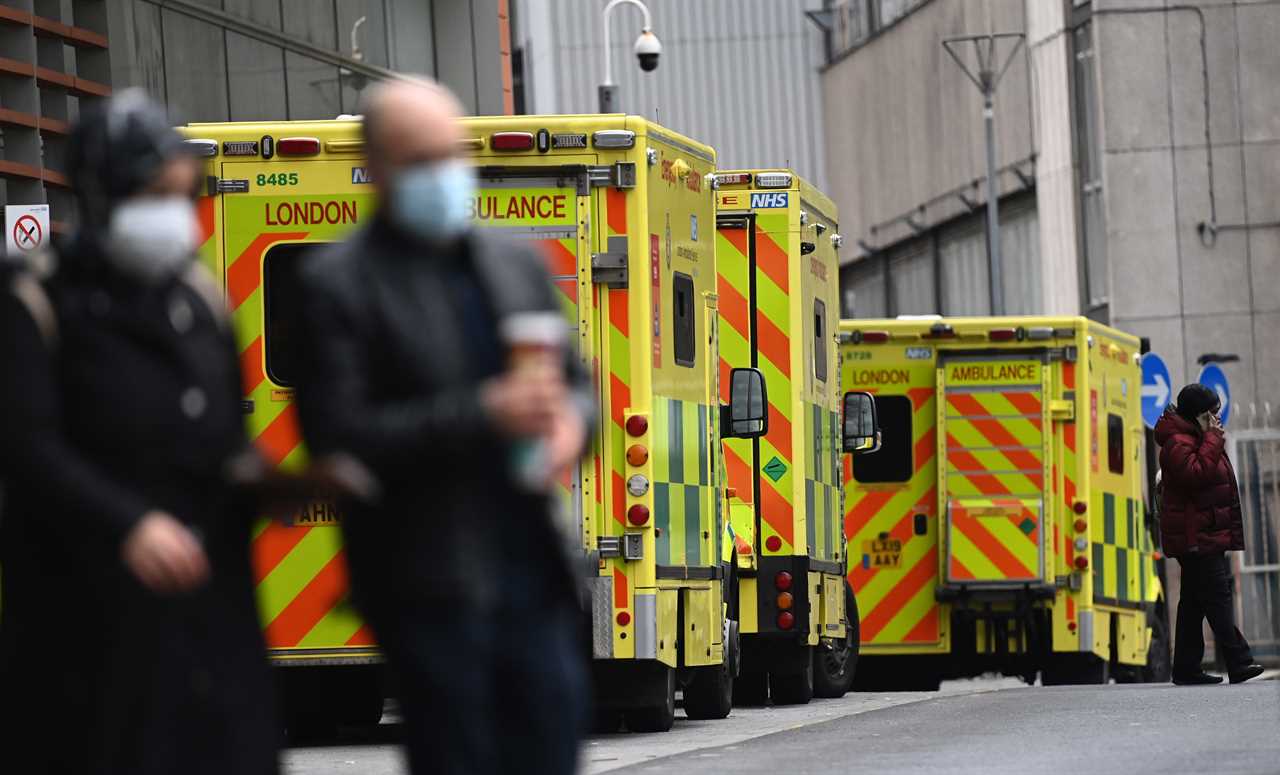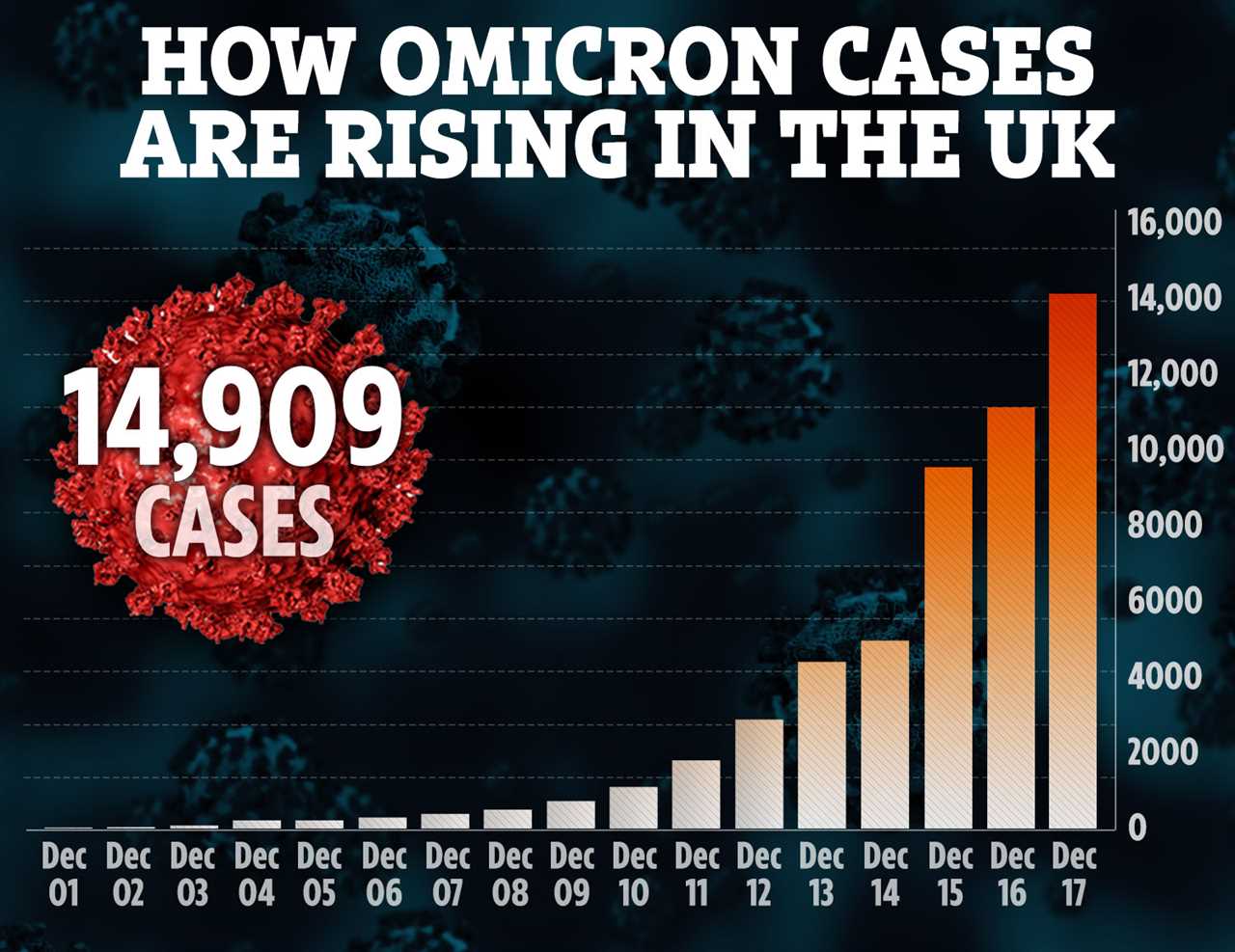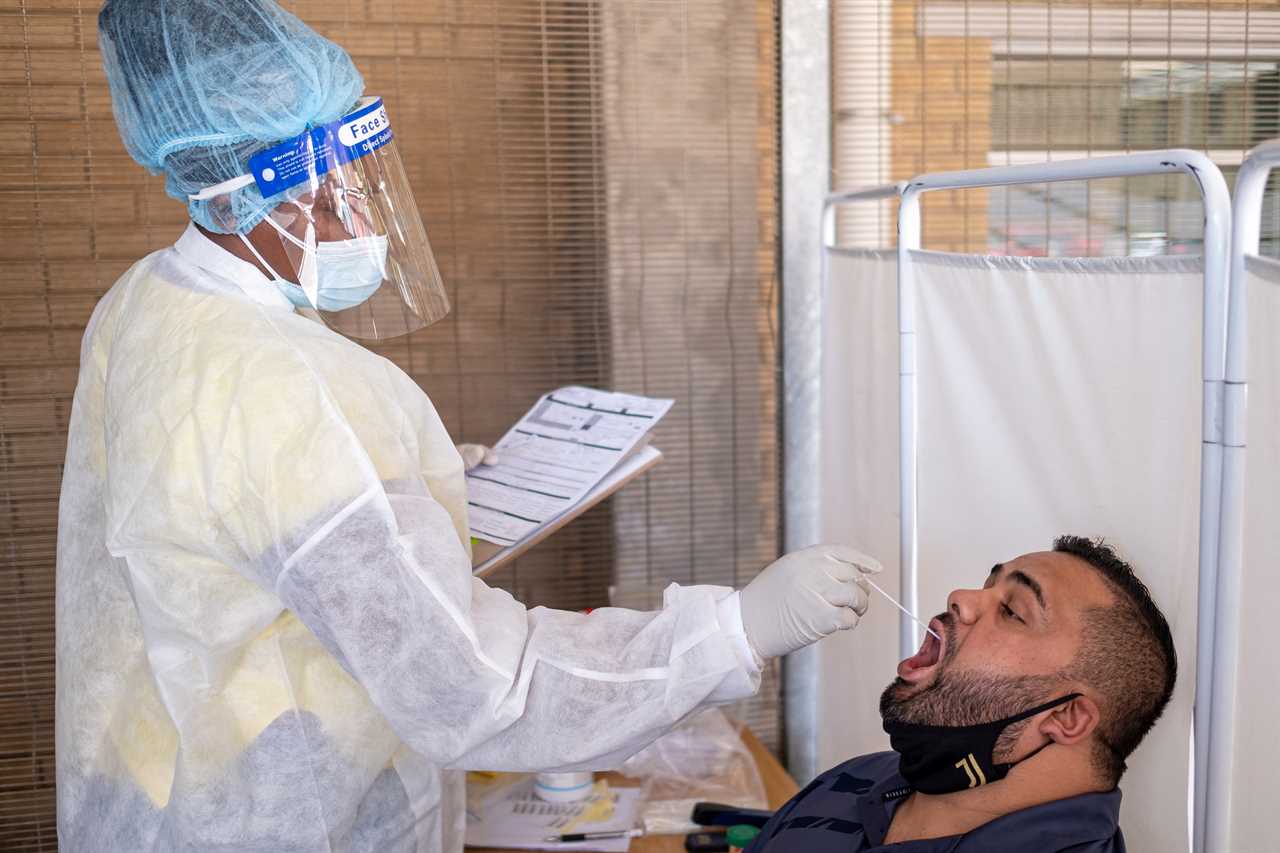THERE have been fewer deaths and hospitalisations from Omicron in South Africa than in previous Covid waves – despite surging cases.
Health chiefs have revealed the good news today amid a record number of new infections.


They say there are a number of caveats – including that the population already has high levels of immunity, meaning the mutation could have different results elsewhere.
However, the report has tentatively bolstered confidence Omicron may not be as severe as other forms of the virus. South Africa did not got into lockdown when the variant was found.
Michelle Groome, the head of Public Health Surveillance at South Africa’s National Institute for Communicable Diseases, said: “The hospitalisations are not increasing at such a dramatic rate.
“We are starting to see some increases, but relatively small increases in deaths.”
Earlier this week, Discovery Health SA, a major health insurer, reported 29 per cent fewer cases of severe illness with Omicron than with the first wave of the pandemic.
Meanwhile, on Wednesday researchers released data suggesting that excess deaths in the country have not yet increased dramatically.
And a public health specialist said the number of people needing oxygen is lower than it was during previous surges.
‘LESS SEVERE’
South Africa’s former Covid-19 tsar has also told the Telegraph that there are reasons to be optimistic.
Professor Salim Abdool Karim said: “If you look at our current situation, we are showing lower severity across the full cascade.
“We are seeing fewer patients who are now symptomatic. We are seeing more asymptomatic cases.
“Of those who have symptoms, fewer of them require hospitalisations.
“Of those who’ve been hospitalised, fewer of them need oxygenation.
“Fewer of them need ICU care and fewer of them are dying.”
South Africa recorded its highest number of daily Covid infections ever seen earlier this week – 26,000.
‘FEWER ARE DYING’
That number was far exceeded in the UK today, with an astonishing 93,000 Brits newly-infected.
Scientists here have warned against complacency as hospitalisations rise, and say the mutation may not be milder than previous variants.
Research led by Professor Neil Ferguson – dubbed ‘Professor Lockdown’ for his role in the first national shutdown last March – says there’s “no evidence” so far that Omicron is less severe.
He has also issued gloomy worst-case scenario predictions that there could soon be 4,000 deaths a day as a result of the variant.
But the University of Oxford’s Professor James Naismith said: “We can be confident that double and especially triple-vaccinated people have protection against serious disease.
“As a result, the number of hospitalisations per 1,000 infections of Omicron will be significantly lower than the first wave. Better medicines and treatments will help too.”
Data proves the booster vaccine is the best protection against both infection and severe disease.
A new study has shown that a top-up dose will protect against severe disease, even if to a lower efficacy than against previous strains.
Trending In The News is urging readers to sign up to the Jabs Army campaign to make the rollout as smooth and fast as possible.








